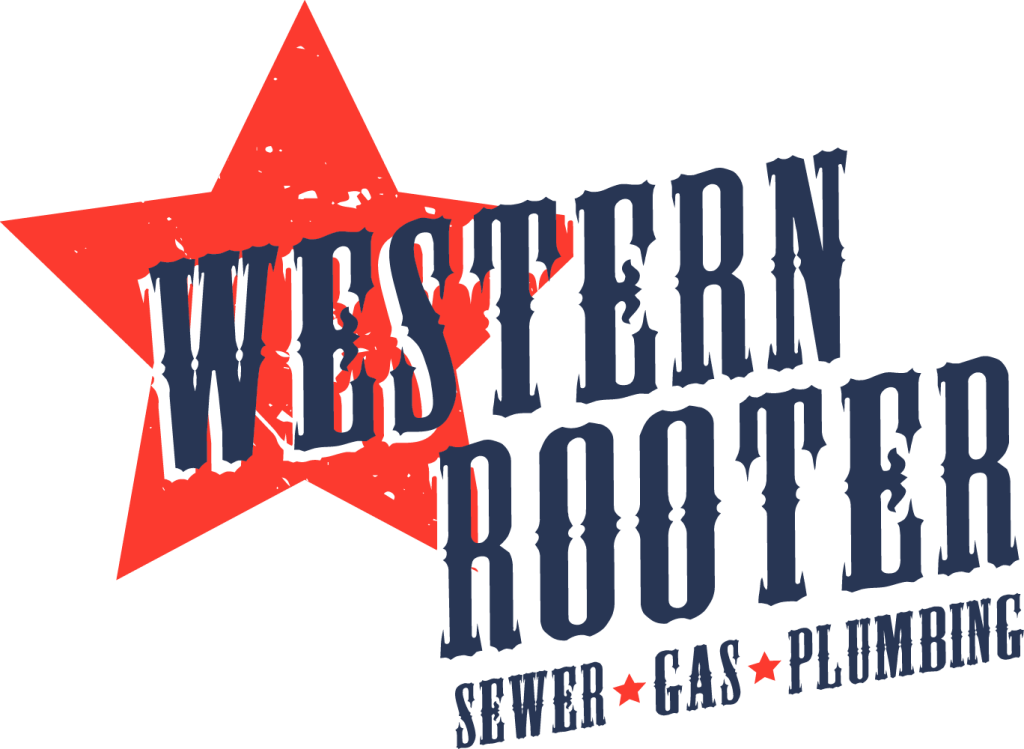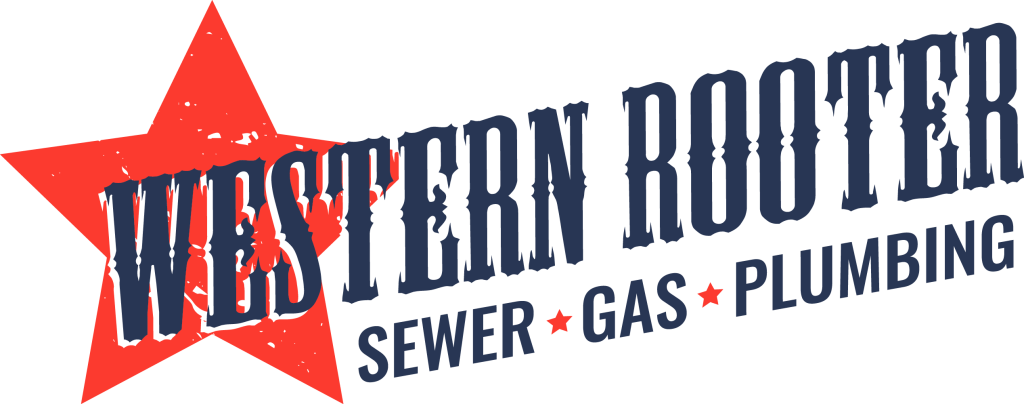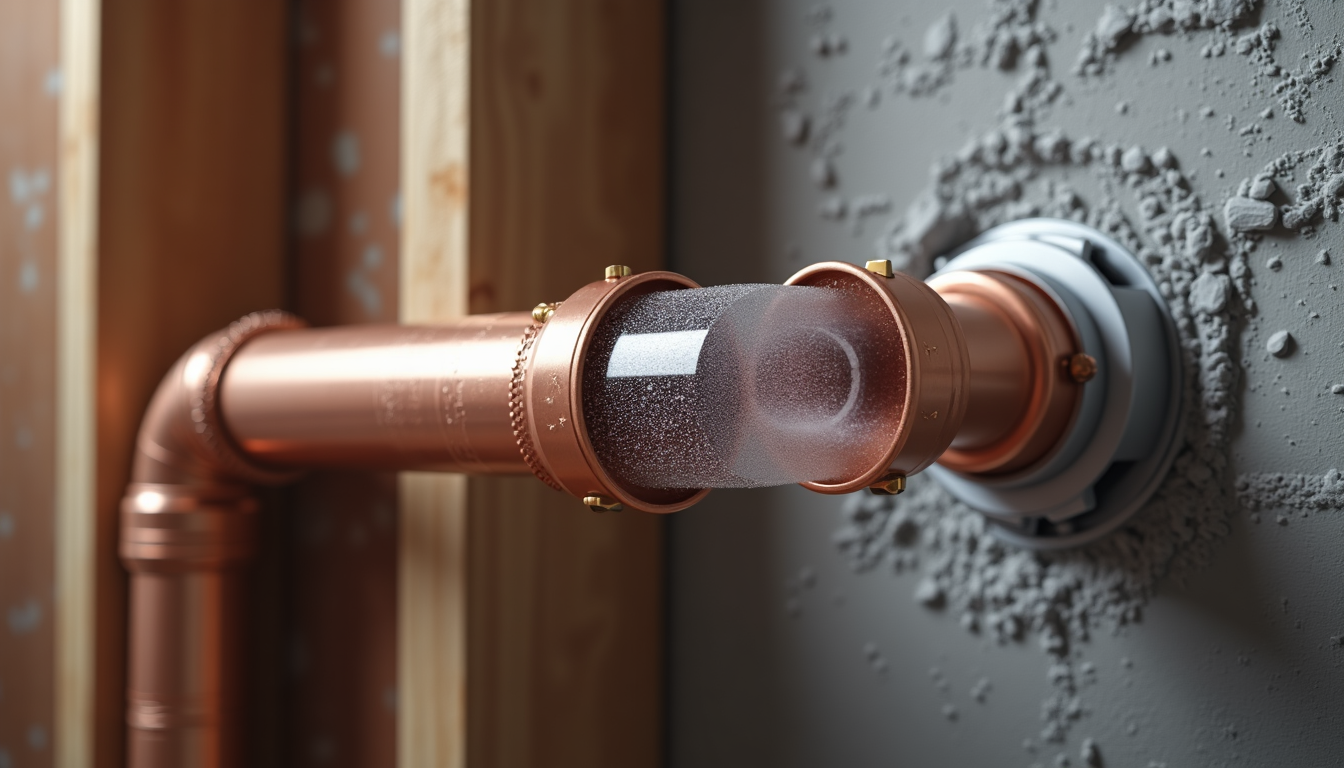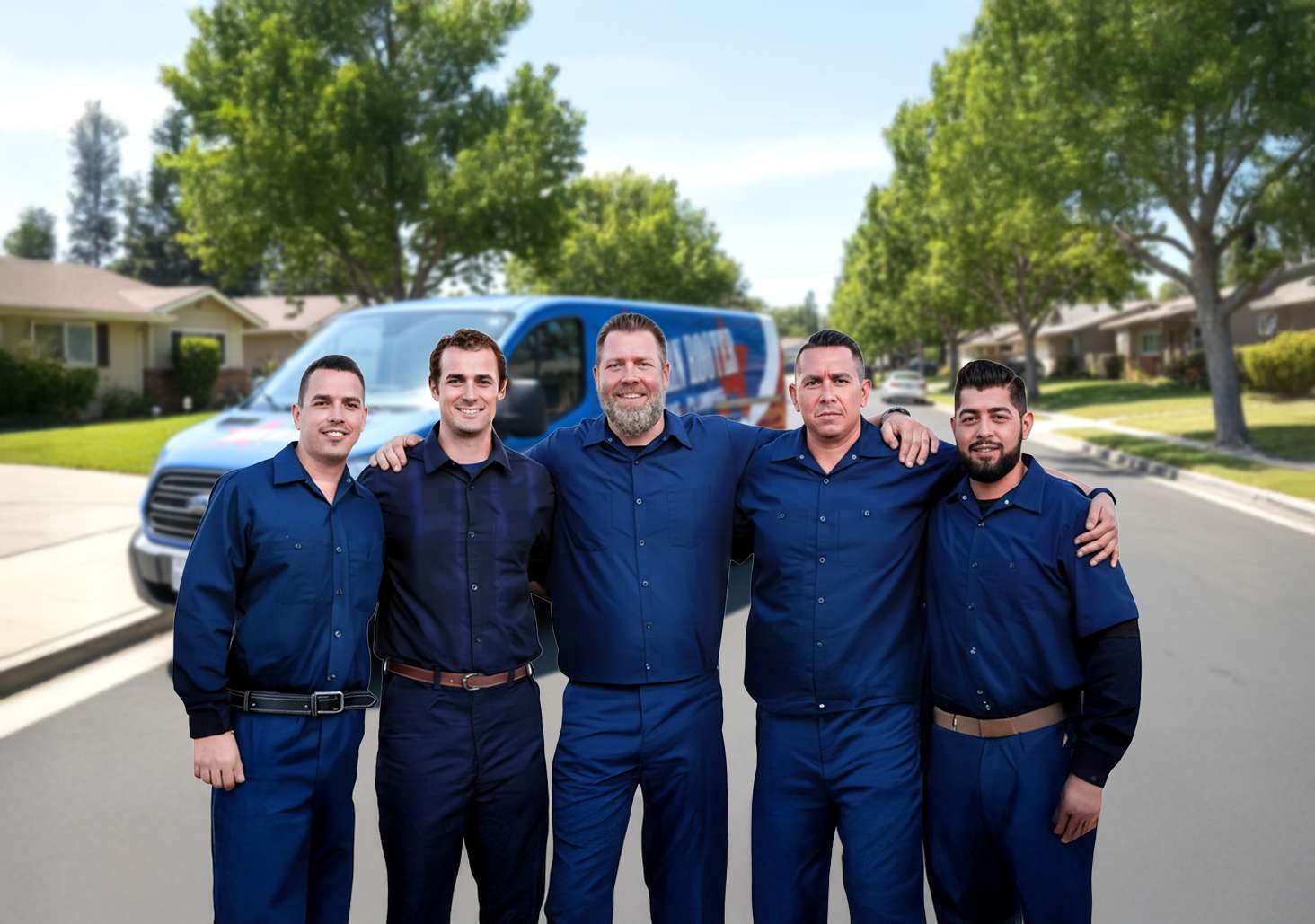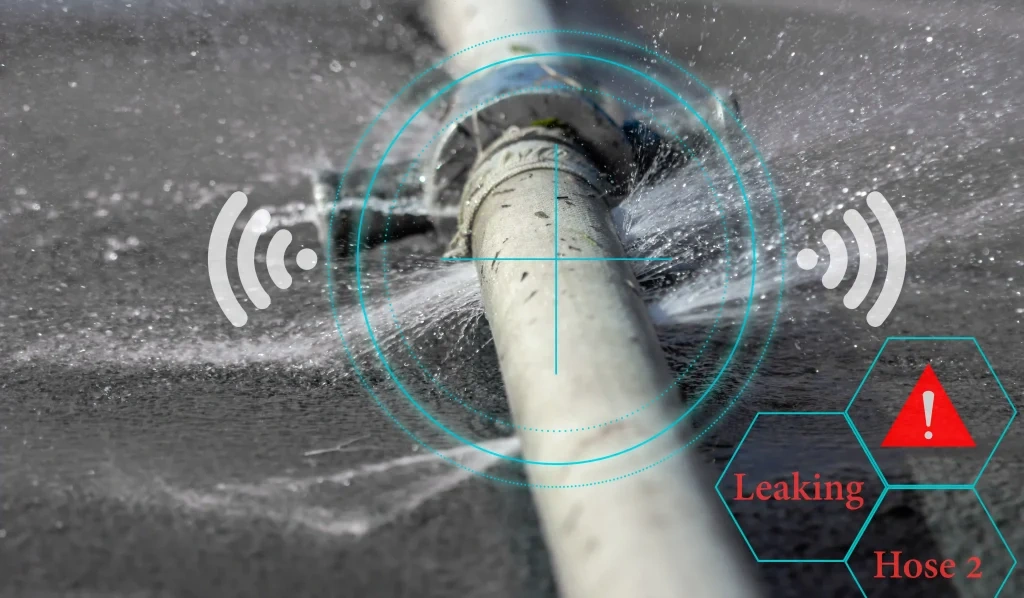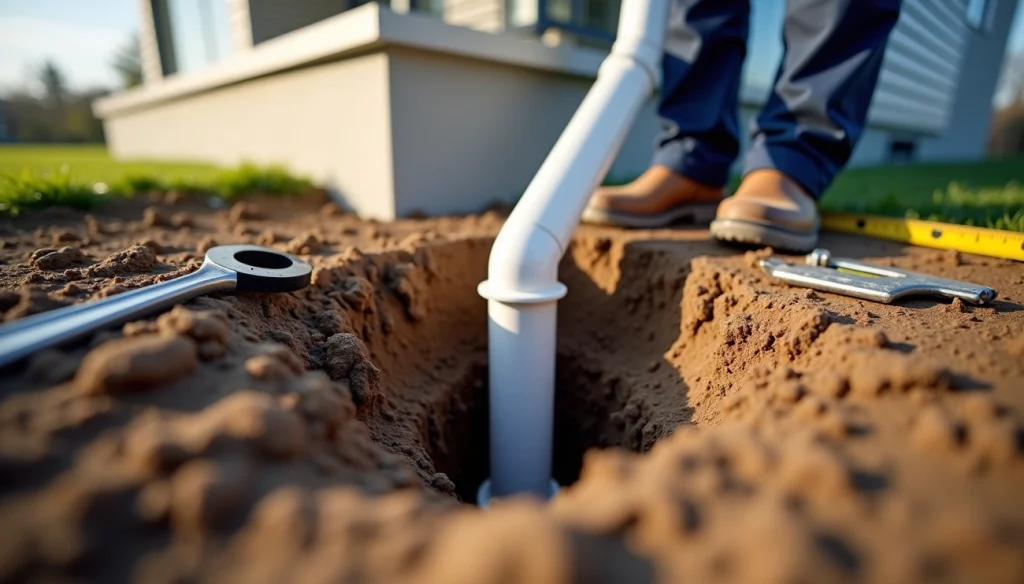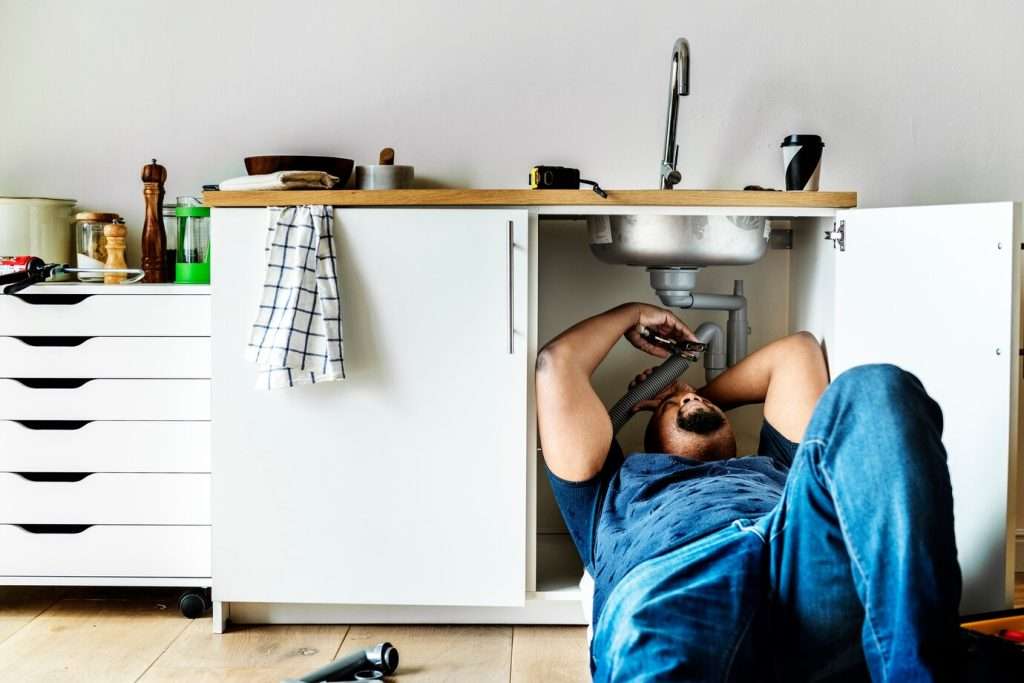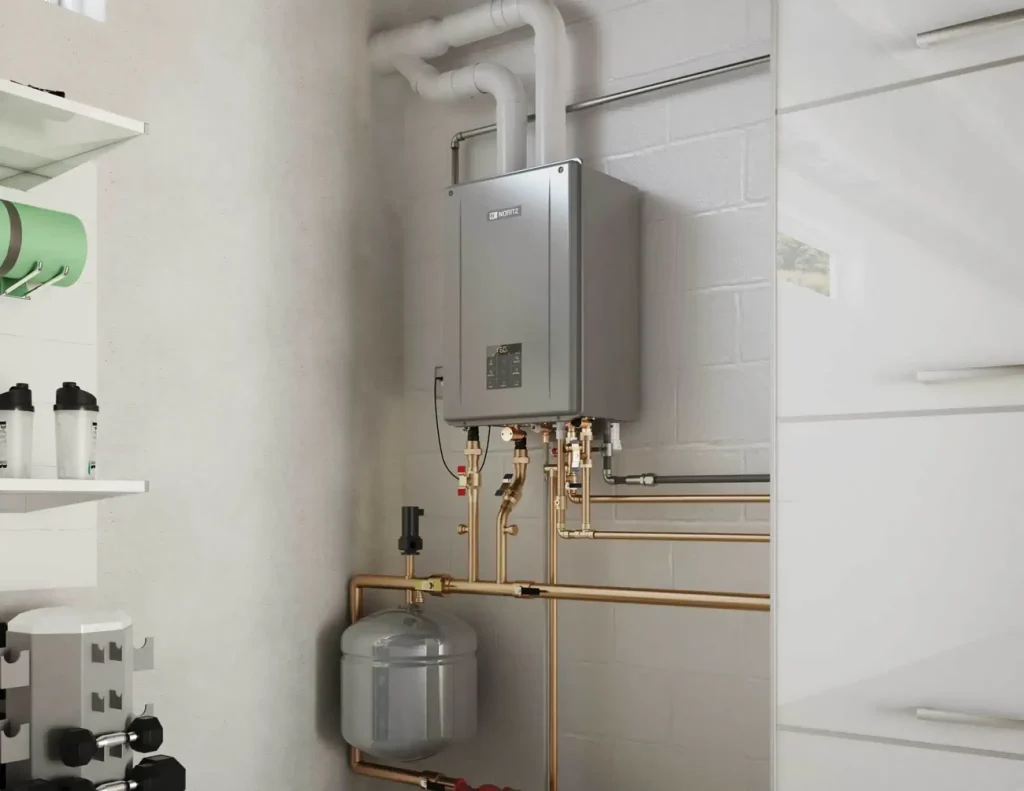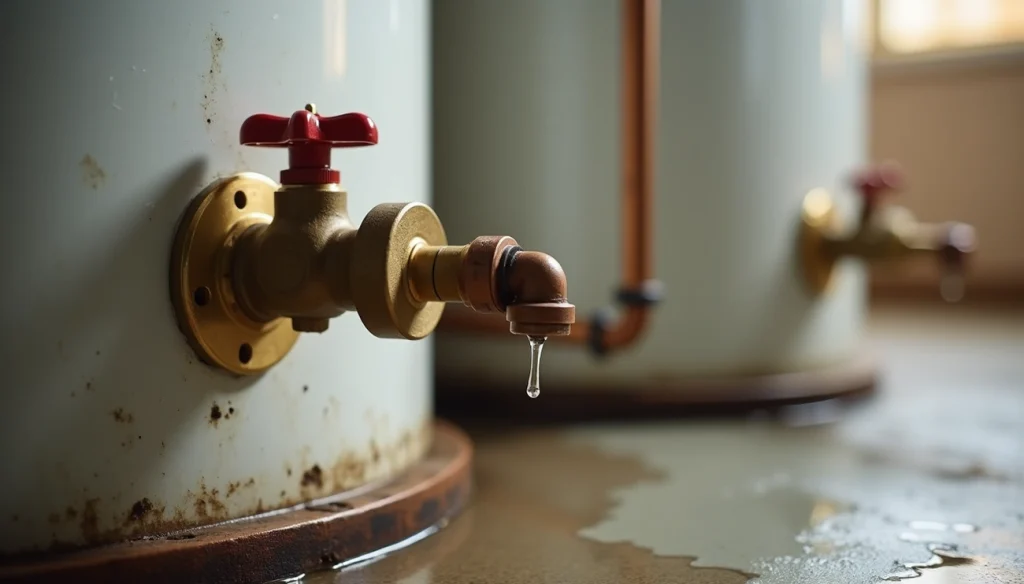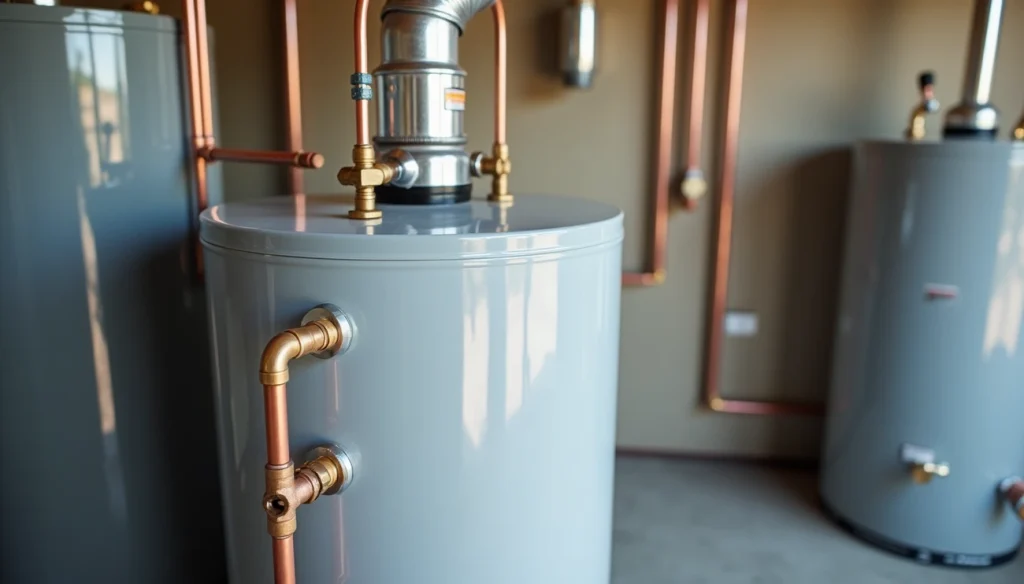Bang! Thump! Clang!
If these sounds are becoming the unwanted soundtrack of your home, you’re probably wondering “why are my pipes banging?” Don’t worry – you’re not alone. This startling problem affects thousands of homeowners, often leaving them concerned about their plumbing system’s health.
Those mysterious bangs might happen when you turn on the hot water, or perhaps they start up right when your heating comes on. While these noises can be alarming, the good news is that most pipe banging issues have straightforward solutions – some you can even fix yourself.
In this guide, we’ll walk you through the common causes of noisy pipes, show you some quick fixes, and help you decide when it’s time to call in a professional. Let’s quiet those pipes down and restore peace to your home!
Common Causes of Banging Pipes
When you hear those concerning noises in your plumbing system, several key factors could be at play. Let’s explore the most common culprits behind those mysterious bangs and clangs.
Understanding Water Hammer
The most frequent cause of banging pipes is a phenomenon called water hammer. This occurs when water flowing through your pipes suddenly stops or changes direction, creating a pressure wave that causes pipes to knock against walls or other surfaces [1]. Think of it like a car suddenly hitting the brakes – the momentum has to go somewhere. This typically happens when appliances like washing machines abruptly shut off their water supply [2].
High Water Pressure Issues
Your home’s plumbing system is designed to handle specific pressure ranges. The ideal water pressure should stay between 40 and 60 PSI (pounds per square inch) [3]. When pressure exceeds 80 PSI, several problems can emerge [4]:
- Increased wear on appliances and fixtures
- More frequent leaks and pipe damage
- Louder and more frequent banging sounds
- Higher water bills due to excessive flow
Loose or Unsecured Pipes
Sometimes, the racket you’re hearing isn’t just about water flow – it’s about how your pipes are mounted. Pipes should be secured every couple of meters to prevent movement [5]. Over time, the mounting straps or supports holding your pipes in place can loosen, allowing pipes to move freely when water flows through them. This movement amplifies the banging sound and can potentially damage your plumbing system [6].
The combination of these issues can create a symphony of unwanted sounds, but understanding their causes is the first step toward finding the right solution. Each of these problems requires different approaches to resolve, from simple DIY fixes to professional intervention.
How to Diagnose the Problem
Identifying the source of noisy pipes starts with careful observation. By paying attention to specific patterns and characteristics, you can better understand what’s causing those concerning sounds in your plumbing system.
When and Where the Noise Occurs
The timing of pipe noises often reveals their cause. Make note of whether the sounds occur when you:
- Turn on hot water specifically
- Shut off a faucet or valve suddenly
- Run certain appliances like washing machines or dishwashers [7]
Different Types of Pipe Sounds
Each type of pipe noise tells a different story about what’s happening in your plumbing system:
Banging or Hammering: These alarming sounds typically occur when valves shut off suddenly, causing water to slam into them [7].
High-Pitched Squealing: Usually comes from specific faucets or fixtures, indicating potential part replacement needs [7].
Gurgling or Bubbling: Suggests air pressure imbalances in your water lines or possible drain issues [7].
Using Sound to Locate the Issue
Modern plumbing diagnosis often relies on sound detection technology. Professional plumbers use specialized equipment with microphones and high-tech headsets to pinpoint exact problem locations [8]. This equipment can:
- Detect water leaks through amplified sound
- Track the path of plumbing issues
- Identify the severity of problems based on sound intensity [9]
For DIY diagnosis, start by following the sound to its loudest point. Different pipes make distinct sounds based on their material – copper pipes tend to be noisier than plastic ones [10]. Pay special attention to areas where pipes meet walls or floor joists, as these are common spots for noise-causing issues.
Remember that certain sounds might be more noticeable at night when your house is quieter [11]. Keep a log of when and where you hear these noises to help identify patterns that could point to specific problems.
Quick DIY Solutions
Ready to silence those noisy pipes? Let’s explore some practical solutions you can try before calling a professional.
Draining and Refilling Your Plumbing System
One of the most effective ways to stop pipe banging is to drain and refill your plumbing system. This process helps eliminate air pockets and recharge air chambers [12]. Here’s how to do it:
- Shut off your home’s main water valve
- Open the highest faucet in your house
- Open the lowest faucet and let all water drain
- Turn the main water valve back on
- Close faucets once water runs clear
Adjusting Water Pressure
If your pipes are banging due to excessive pressure, you’ll want to check and adjust it. The ideal water pressure should stay between 40-80 PSI [13]. Install a pressure-reducing valve where the water main enters your house [14]. This valve lets you set the pressure as low as needed while maintaining adequate water flow.
Securing Loose Pipes
When pipes aren’t properly secured, they can knock against walls or floor joists. For this fix, you’ll need the right type of pipe straps or clips [10]. Important note: Match the strap material to your pipe type – use copper or plastic straps for copper pipes, and stick with plastic straps for plastic pipes [15]. Install straps every foot along the pipe’s length and at every directional change [10].
If you’re dealing with hot water pipes specifically, remember they expand when heated. Leave a bit of room in the straps to allow for this natural movement [10]. For those hard-to-reach places, consider using foam insulation where pipes exit walls [13].
When to Call a Professional
While DIY solutions can fix many pipe noises, sometimes you need professional expertise. Here’s when and why you should consider calling a qualified plumber.
Signs of Serious Plumbing Issues
When your banging pipes are accompanied by these warning signs, it’s time to call a professional:
- Water stains or puddles in multiple areas
- Decreased water pressure throughout your home
- Persistent plumbing noises that don’t improve
- Mysterious leaks or water damage on walls
- Foul odors or discolored water [16]
Cost Estimates for Common Repairs
Understanding potential costs helps you budget appropriately. Here are average repair costs:
- Basic pipe repairs: $150-$240 for pinhole leaks [17]
- Emergency plumbing services: $100-$500 [18]
- Burst pipe repairs: $400-$1,500 [17]
- Water main line issues: $2,000-$3,000 [17]
Choosing a Qualified Plumber
Finding the right professional is crucial for lasting solutions. Look for these essential qualifications:
A qualified plumber should have proper licensing and insurance coverage [16]. Most states require plumbers to complete mandatory continuing education to maintain their license [18]. Ask about their experience with similar issues and request proof of workers’ compensation and liability insurance before hiring [18].
Remember that attempting complex plumbing repairs without proper expertise can lead to costly water damage, structural issues, or even void your home insurance coverage [19]. While the initial cost of professional service might seem high, it’s often more economical than fixing DIY mistakes.
Conclusion
Noisy pipes might seem alarming, but most cases have straightforward solutions. Understanding the root cause – whether it’s water hammer, high pressure, or loose mounting – helps you choose the right fix for your situation. Many homeowners can resolve these issues through simple DIY steps like draining the system, adjusting water pressure, or securing loose pipes.
Safety comes first with plumbing repairs. While minor fixes work well for common problems, serious signs like water damage, persistent leaks, or system-wide pressure issues need professional attention. A qualified plumber brings expertise and proper tools to solve complex problems effectively.
Remember that regular maintenance prevents most pipe banging issues. Quick action when you first notice unusual sounds can save you from costly repairs later. Keep monitoring your plumbing system’s performance and address any changes promptly to maintain a peaceful, properly functioning home.
References
[1] – https://www.bobvila.com/articles/water-hammer/
[2] – https://villageplumbing.com/blog/what-is-water-hammer-and-how-to-stop-it/
[3] – https://wecareteam.com/7-reasons-why-plumbing-fixtures-become-loose-over-time/
[4] – https://plumblineservices.com/help-guides/does-high-water-pressure-damage-plumbing
[5] – https://www.anchorpumps.com/blog/what-causes-water-hammer-how-to-eliminate-it/
[6] – https://www.angi.com/articles/old-plumbing-poses-problems-historic-homes.htm
[7] – https://www.advantageplumbingnow.com/2022/09/20/plumbing-noises-in-walls/
[8] – https://accurateleaklocators.com/leak/what-are-plumbing-electronic-sound-tests/
[9] – https://www.wmhendersoninc.com/blog/how-is-sound-used-to-detect-plumbing-leaks/
[10] – https://www.petetheplumber.com/quick-fix-for-banging-or-thwacking-pipes/
[11] – https://davishomeservices.com/expert-tips/how-to-diagnose-your-plumbing-noises/
[12] – https://dorringtonplumbing.com.au/fix-noisy-water-pipes/
[13] – https://www.mrplumberatlanta.com/help-guides/how-to-quiet-your-noisy-knocking-water-pipes
[14] – https://www.fosters.com/story/lifestyle/home-garden/2016/11/03/heres-how-stop-water-bang-noise-in-your-plumbing/24625756007/
[15] – https://www.doityourself.com/forum/plumbing-piping/428958-securing-loose-pipes.html
[16] – https://www.staggsplumbing.co/blog/silencing-your-homes-noisy-plumbing-causes-solutions-and-prevention/
[17] – https://www.thumbtack.com/p/pipe-repair-cost
[18] – https://www.thisoldhouse.com/plumbing/21014885/hiring-a-qualified-plumber
[19] – https://www.nuflowmidwest.com/the-dangers-of-diy-pipe-repair-why-you-should-leave-it-to-the-professionals/
